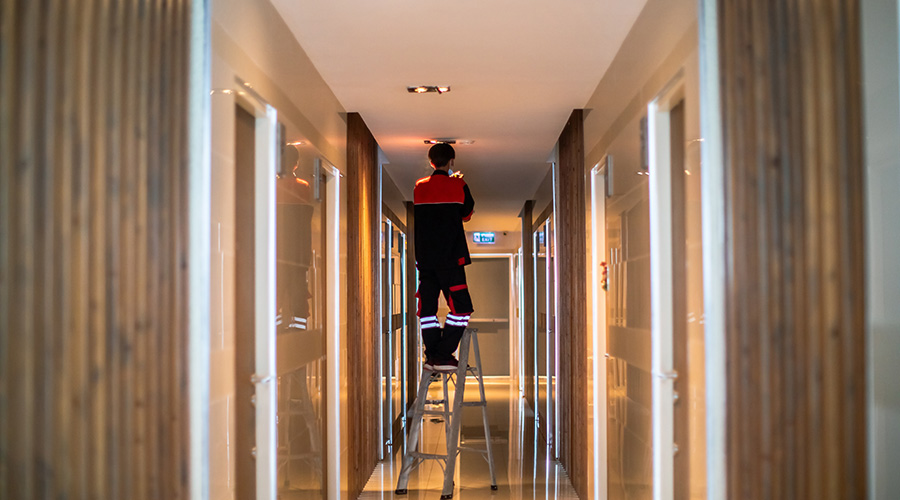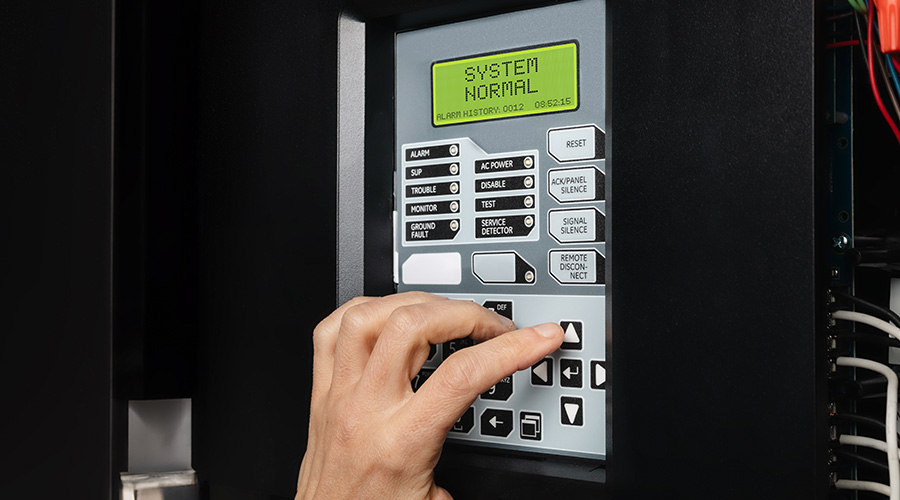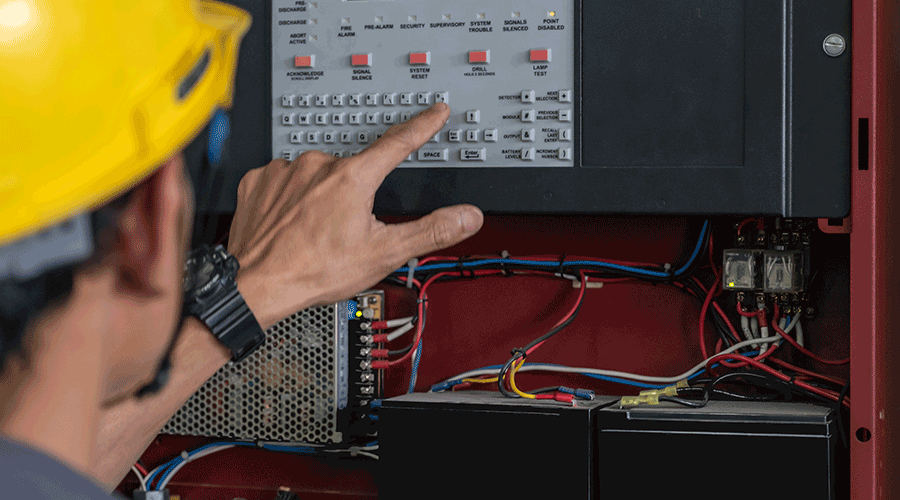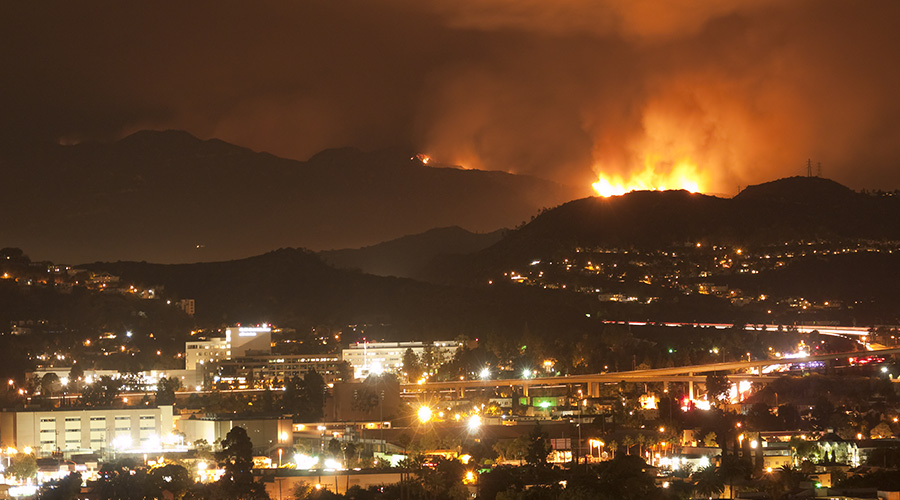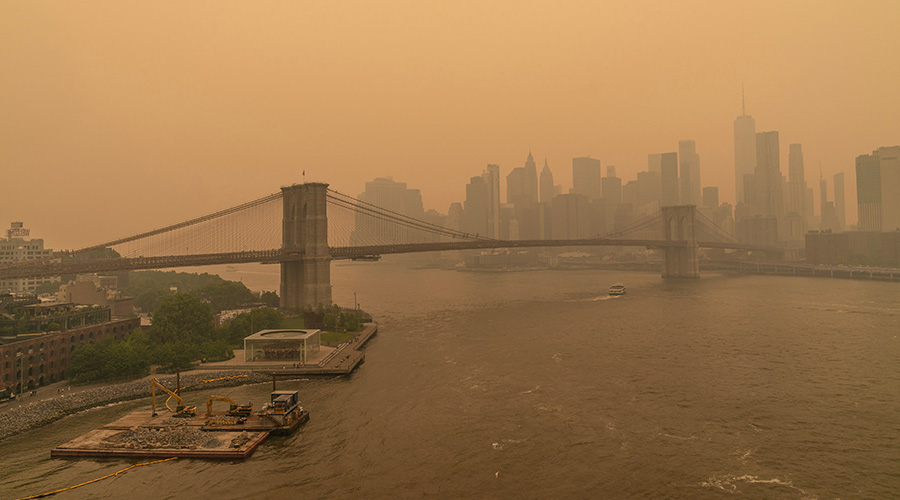When to Replace Fire Systems Per NFPA 72
If systems are obsolete or in need of replacement, facility managers should take these steps.
Eventually, no amount of maintenance will be able to prevent the need to replace the existing fire alarm system. There are many reasons that a fire alarm system might need to be replaced. It could be outdated, starting to malfunction, lack of replacement parts, or have outstanding recall items.
The danger of waiting until a system or a significant component fails is that you then must make an emergency replacement, which always costs significantly more than a planned replacement. A building owner may not want to budget for a fire alarm upgrade or replacement, but they most certainly do not want to pay for fire watch, overtime installation, and other similar emergency replacement costs.
This Q&A series covers questions relating to ongoing maintenance and system replacement of fire alarm systems in accordance with NFPA 72.
Under NFPA 72, what are the steps necessary to upgrade or replace a fire alarm system?
NFPA 72 does not specifically address this situation. That said, if you have a system that is more than 20 years old, for example, you will want to re-evaluate your fire alarm system needs before beginning the system replacement. Do not allow a contractor to convince you that a “one-for-one replacement of all devices and notification appliances” will be either the right thing to do or that it will be code compliant. If you allow that work to proceed you may receive a costly surprise when the AHJ refuses to accept the new system.
If your system uses single- or multiple-station smoke alarms (not system smoke detectors) or if you have carbon monoxide alarms or detectors, these devices have a life span of 10 years and must be replaced at that point. A facility manager should know the age of various forms of smoke and carbon monoxide alarms and detectors in order to have compliant and operable detection within their facilities.
What do I do if I discover the fire alarm system in my building is inadequate?
It depends on your findings. Never accept the argument that the AHJ accepted the system so it must be acceptable. That is especially true if you were not in charge when the system was first installed. The AHJ may not have inspected the system entirely and could have relied on the contractor. If you suspect your system is inadequate it is best to hire a fire protection engineer to evaluate the system and your building along with the needs of your current operation before you make any decisions regarding system changes.
When should my fire alarm system be upgraded or replaced under NFPA 72?
NFPA 72 does not address system upgrades or replacements. These milestones would be dictated by age, environment, and other factors not contemplated by NFPA 72. It is always good practice to have a professional provide an evaluation of existing systems and provide an estimate of when upgrades or replacements are needed. See also the answer to the following question.
If I am told my fire alarm system is obsolete, does NFPA 72 require me to replace it?
No. But if someone does advise you that the system installed is obsolete, you should first verify with a professional that the information is correct. If the system is obsolete and you have not been able to locate replacement parts or have had a technician try to “jury-rig” a repair in order to maintain the system’s operational status, you should immediately begin plans for a phased system replacement to avoid a costly emergency full system replacement.
If I have a problem with my fire alarm system and it is obsolete, why should I begin planning for a replacement even though NFPA 72 does not automatically require me to replace the entire system?
If your equipment is obsolete and you have a catastrophic failure, you will then have an emergency full system replacement on your hands. Facility managers should always know the age and condition of their installed fire alarm system so they can plan system upgrades and replacements. A planned system replacement can be as much as one half the cost of an “emergency” system replacement.
Wayne D. Moore is a licensed professional fire protection engineer with over 45 years of engineering experience. Moore currently serves on the NFPA 72 Correlating Committee and Chapter 24 Technical Committee (past Chair), as well as being an editor of five editions of the “National Fire Alarm Code Handbook.”
Larry D. Rietz, is a NICET Level IV Certified fire alarm designer with more than 29 years of life safety industry experience. Rietz is Vice President and Global Service Line Leader for Fire Detection and Alarm for Jensen Hughes and serves on the NFPA 72 Chapter 24 and 12, 21, & 23 Technical Committees.
Related Topics:








